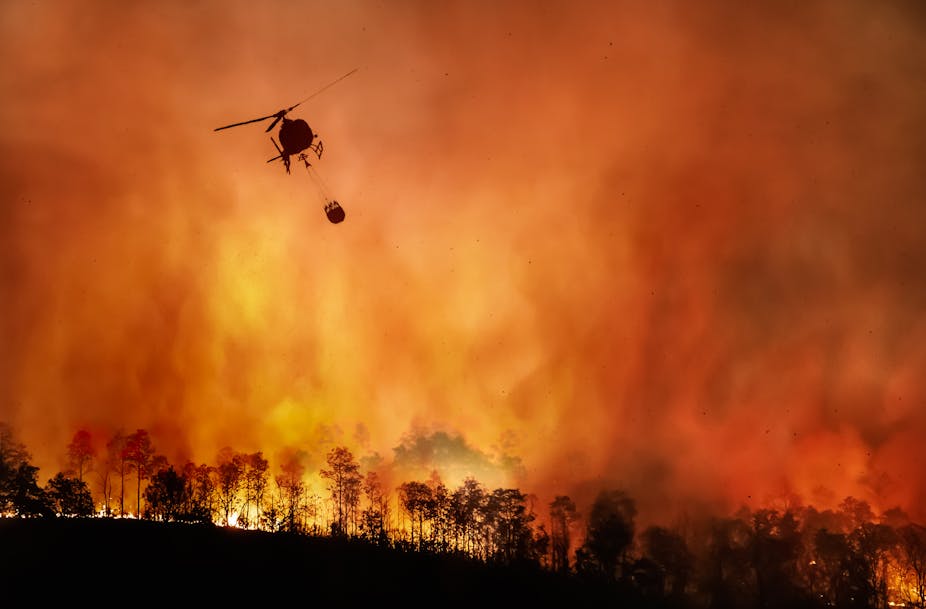For decades, scientists have warned that unchecked global warming could bring climate extremes such as severe droughts, flash floods and rising sea levels. In this episode of The Conversation Weekly, we talk to three climate change experts on how predictions of a changing world are holding up against the reality we’re living through.
From heatwaves across North America, to flash floods in China and fires smouldering across Siberia, 2021 has brought a steady stream of climate extremes. In August, Valérie Masson-Delmotte, co-chair of the latest Intergovernmental Panel for Climate Change (IPCC) report, warned that as the earth continues to warm, scientists expect to see “extremes that are unprecedented in magnitude, frequency, timing or in regions that have never encountered those kind of extremes”.
For Christopher White, these strong statements show just how far climate science has come since the IPCC’s first reports in the 1990s. White, head of the Centre for Water, Environment, Sustainability and Public Health at the University of Strathclyde in Scotland, tell us that as attribution science – the ability to link the severity of particular events to climate change – has become more assured in recent years, so too has the language about what might happen next.
But White says some scientists, shocked by recent extreme weather events, are beginning to worry they’ve underestimated how quickly the climate will change. “We’re perhaps caging our statements around what could happen because of the uncertainty in the projections, saying they might happen in 30 years time or 50 years or 80 years time. To see these sorts of events happening right now, means it’s a major shift in thinking.”
In some parts of the world, the global projections for how the climate will change don’t match the reality. Victor Ongoma, assistant professor at Université Mohammed VI Polytechnique in Morocco and an expert on the climate of east Africa, talks to us about the east Africa climate paradox. He tell us that global climate models don’t match the current reality in the region: “Rainfall over this region is supposed to be increasing and is projected to increase throughout the 21st century, which is the opposite to what’s happening.” This makes life difficult for farmers who depend on seasonal rainfall.
Read more: Insights for African countries from the latest climate change projections
Better observations of what’s happening to our climate can be used to adjust the projections of what might happen. Kewei Lyu, a postdoctoral researcher in ocean and climate at CSIRO in Australia, talks to us about his new research that’s improved projections for ocean temperatures. Using data from the Argo Project, a network of floats that are continuously taking the ocean’s temperatures, his team have been able to improve estimates for how much sea levels will rise. If global greenhouse gas emissions remain on their current trajectory, he says that by the end of the century, the global ocean “is likely to warm by 11-15 times” the amount it’s already warmed in the past 15 years. “That could directly contribute to 17cm to 26cm of sea level rise.”
Plus, Justin Bergman, deputy politics editor at The Conversation in Melbourne, Australia, recommends some recent analysis of the fallout from the AUKUS defence pact.
This episode of The Conversation Weekly was produced by Mend Mariwany and Gemma Ware, with sound design by Eloise Stevens. Our theme music is by Neeta Sarl. You can find us on Twitter @TC_Audio, on Instagram at theconversationdotcom or via email on podcast@theconversation.com. You can also sign up to The Conversation’s free daily email here.
News clips in this episode are from DW News, Reuters, ABC News, UN Archive, Kenya Citizen TV, Channel 4 News, CBS News, WION and Al Jazeera English.
You can listen to The Conversation Weekly via any of the apps listed above, download it directly via our RSS feed, or find out how else to listen here.

